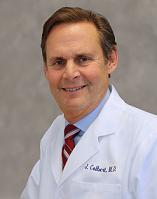 Jeffrey Colbert, MD, board-certified orthopedic surgeon, recently became a partner of DISC Sports & Spine Center in Marina del Rey, Calif. Prior to joining DISC, he was a founding partner of Los Angeles Sports Medicine & Orthopaedic Medical Surgery Group. He earned his medical degree from Wayne State University in Detroit and completed his internship at Cedars Sinai Medical Center in West Hollywood, Calif. He completed his orthopedic residency at Boston University Affiliated Hospitals.
Jeffrey Colbert, MD, board-certified orthopedic surgeon, recently became a partner of DISC Sports & Spine Center in Marina del Rey, Calif. Prior to joining DISC, he was a founding partner of Los Angeles Sports Medicine & Orthopaedic Medical Surgery Group. He earned his medical degree from Wayne State University in Detroit and completed his internship at Cedars Sinai Medical Center in West Hollywood, Calif. He completed his orthopedic residency at Boston University Affiliated Hospitals.
Here he discusses his new role at DISC, his approach to patient treatment and how orthopedics has evolved.
Q: What do hope to accomplish in your new role at DISC Sports & Spine Center?
Dr. Jeffery Colbert: I am a board-certified orthopedic surgeon. My interest lies in knee and shoulder injuries. For 25 years, I ran and managed an extremely busy orthopedic office in Marina, Calif. At DISC, I can focus exclusively on patients and their treatment and not worry about the day-to-day practice management. I also have access to the excellent surgery center and equipment we have here.
Q: You are well-known for having a conservative approach. Can you describe how you apply this to your day-to-day practice?
JC: My philosophy is to treat patients the way I would want to be treated. Most orthopedic injuries can be treated non-operatively and conservatively. For those patients that must be treated surgically, I rely on predictable procedures that consistently produce excellent outcomes. With each patient, I take a very straightforward approach in explaining the extent of an injury and all of its treatment options. I treat each patient as an individual and allow the patient to be actively involved in the treatment process.
Q: During your career as an orthopedic surgeon, you have worked with professional athletes. How has this affected your overall approach to sports medicine?
JC: At my prior office, we were the team physicians for the Los Angeles Clippers for more than 20 years. We were also actively involved in treating elite athletes and served as the medical director of the Los Angeles Olympics in 1984.
Tissues take a specific amount of time to heal, no matter who the patient is. I stress aggressive rehabilitation to provide athletes the ability to safely return to sports as soon as possible. I am typically more involved in the rehabilitation process than many physicians. I see patients on a regular basis postoperatively, keep in touch with patients' therapists and supervise home programs.
Q: Will the entire field of orthopedics be subject to dramatic changes within the next five to 10 years?
JC: Orthopedics has been an evolving specialty over the last couple of decades. It has changed as much as any field of medicine. We are now able to do a lot of procedures arthroscopically, particularly with shoulders and knees. Some of these procedures we would not have thought about doing 10 or 15 years ago. The techniques and implants for knee and hip implants have improved so much over the last decade that we are getting to the point that we can do more and more procedures with an overnight stay, in a setting such as a surgery center.
More Articles on Orthopedics:
Sports Medicine & Community Involvement in Orthopedics: Q&A With Dr. Paul Cain of Central Maine Orthopaedics
Foot and Ankle Surgery & Establishing an Orthopedic Non-Profit Organization: Q&A With Dr. Selene Parekh of Duke University
Evidence-Based Medicine & the Next Frontier in Orthopedics: Q&A With Dr. David Dines of Hospital for Special Surgery


